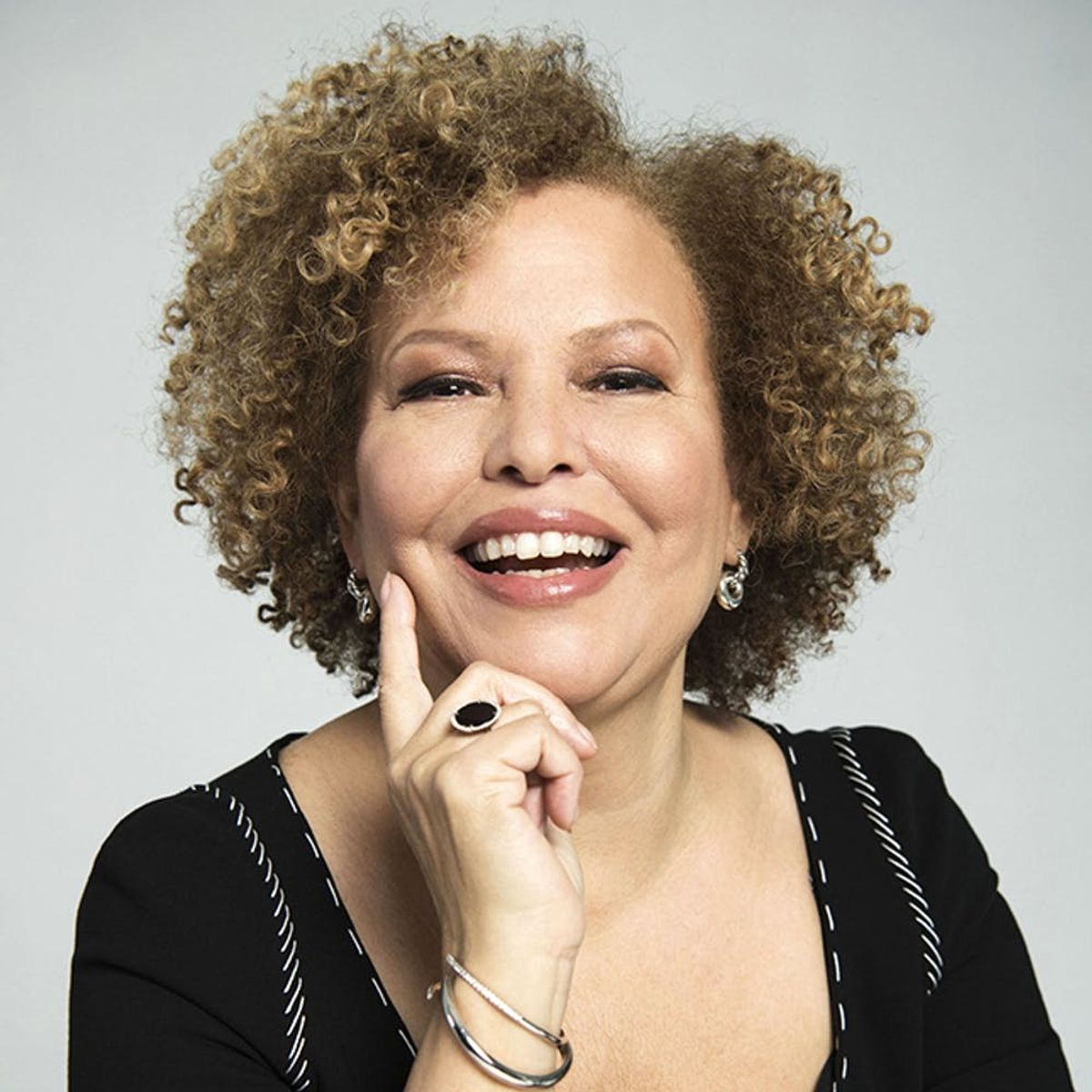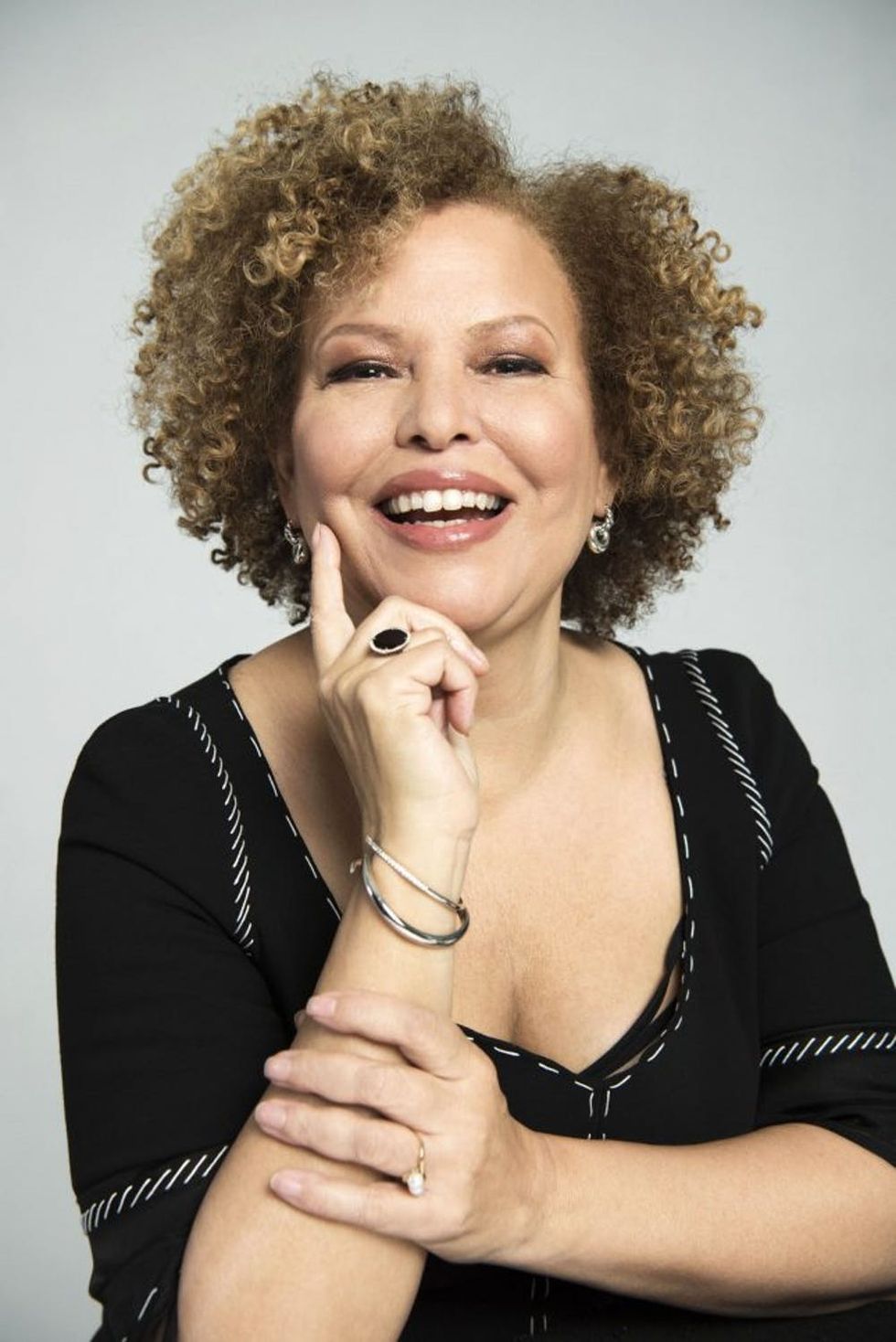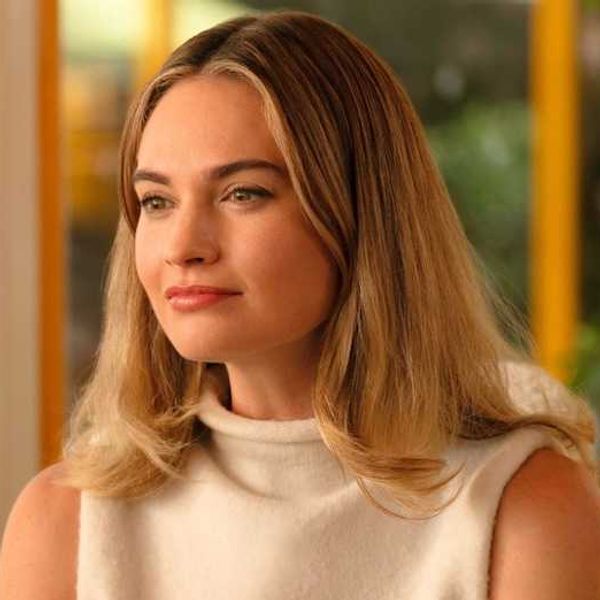Adequate representation starts with leadership.
BET Networks Chairman & CEO Debra L. Lee on Why There’s a Diversity Problem in Entertainment

For Chairman and CEO of Black Entertainment Television (BET Networks) Debra L. Lee, representation is an issue that’s always on her mind. After clerking for the late Honorable Barrington Parker and serving more than five years as an attorney in Washington DC, Lee joined BET Networks as Vice President and General Counsel before working her way up to her current CEO status. Today, Lee has received countless professional accolades while fighting for adequate representation in a notoriously stubborn industry, including being named one of The Hollywood Reporter‘s 100 Most Powerful Women in Entertainment and earning a spot on Billboard‘s Power 100; just last year, the Grammy organization recognized her with the Salute to Industry Icons Award (she’s currently the first and only woman to receive this honor). Despite Lee being extremely busy working on BET’s annual Leading Women Defined Conference, we recently got the opportunity to chat with her about all things representation in entertainment — from why adequate representation starts with leadership positions to why Frances McDormand’s inclusion rider is so important.

Brit + Co: We love that it’s important to you as the Chairman and CEO of BET Networks, the leading provider of entertainment for the African American audience and consumers of Black culture, to have strong women represented in top leadership positions. Can you talk a little about why this is important to you?
Debra L. Lee: It is important to have as many diverse voices in top leadership positions in all media companies. A media company cannot produce truly representative images of our world today without the input of diverse voices. This input is only possible when you have women, people of color, and LBGTQ+ people in decision-making and green-light positions. Also, with more women at the top, I hope the issues spotlighted recently by the #Time’sUp and #MeToo movements will disappear from our industry.
B+C: What are your thoughts about the inclusion rider, which was brought to the world’s attention by Frances McDormand at the 2018 Oscars? With celebrities and directors like Michael B. Jordan, Paul Feig, Ben Affleck, and Matt Damon all signing on to adopt the inclusion rider on their future projects, do you think that this is the way the industry is going?
DLL: I think the inclusion rider that Frances McDormand mentioned in her Oscar speech is brilliant and necessary. Some leaders in this industry will not change their ways unless we pressure them to do so. A contract clause promoting diversity will let studios, producers, and directors know this issue is important to talent and whoever includes the rider. I certainly hope this call for inclusion riders is the future of this industry — and maybe one day, we won’t need them anymore.
B+C: According to a recent report from the Ralph J. Bunche Center for African American Studies at UCLA, “minorities and women have registered gains in several key areas of television but remain disproportionately represented in most areas of the entertainment industry.” This is despite the fact that the same report has repeatedly found that films and TV shows with casts that reflect America’s diversity tend to register the highest global box office figures and viewer ratings. Why do you think that American media still has a major problem with representation?
DLL: I think American media has a major problem with representation of minorities and women because the men historically running this industry have refused to see the need to do it and they have ignored the business upside of doing it. They want to tell their own stories and there are not enough minorities and women in decision-making roles and positions of authority to change the industry. We have started to see some improvement in television, and hopefully, the incredible success of Black Panther will bring about changes in the movie industry.
B+C: Speaking of Black Panther, which featured a nearly all Black cast with filmmaker Ryan Coogler at the helm, this movie was one of the biggest box-office smashes of the year so far, grossing over $700 million in less than two weeks. Why do you think Black Panther is having such a profound impact on today’s culture?
DLL:Black Panther is having such a profound impact on today’s culture because it tells a moving and colorful story about African culture, which we have not seen before. Black Panther is our first Black superhero, and the women and men in the film are proud, educated, and caring. The world needed this refreshing look at Africa and our definition of superheroes. The film has proven to be inspiring to people of color and millions of people around the globe. It also shatters the myth that movies with Black lead characters do not sell around the world.
B+C: Recently BET held their annual Leading Women Defined Conference, which brings together the most prominent African American women in the country for honest conversations about issues that matter to them and their communities. What motivated BET to start this important conference? What were some of the highlights of this year’s event?
DLL: I started the Leading Women Defined conference nine years ago to give prominent African American women in all fields a chance to come together once a year to discuss ways we can use our collective power to make the world a better place and to provide a sanctuary for these women to discuss issues of importance to them. We also focus on strategies for self-care and wellness inside of the busy lives these women lead taking care of others. This year there were several great panels, but I would say the two highlights were seeing the girlfriend connection between Michelle Obama and Valerie Jarrett [former senior advisor to President Obama] as Valerie interviewed her friend Michelle about years in the White House and since leaving the White House. The second highlight was giving an award to Nunu Ntshingila-Njeke, the Black South African female advertising veteran who heads up Facebook Africa.
B+C: Which women in the industry are currently inspiring you the most?
DLL: The women who impress me the most right now in the media industry are Shonda Rhimes, Donna Langley, and Ava DuVernay. These women are telling stories that portray diverse voices in an authentic way. Also, among younger women in the business, I truly admire Yara Shahidi and Janelle Monáe for their talent and their activism.
B+C: What’s the best advice you have for minority women who are trying to start a career in the entertainment industry?
DLL: My advice to young women starting in any aspect of media is to learn your craft well and strive to be the best. I would add to never stray from your values and to let your voice be heard at an early age and throughout your career. You are in the room where it happens for a reason.
B+C: Finally (we have to ask!), what show are you currently obsessed with?
DLL: I am currently obsessed with The Chi. Lena Waithe is another woman that I am watching closely!
What are your thoughts about the current state of minority representation in entertainment? Tweet us by mentioning @BritandCo.
(Photo via Max Vaduku)


















